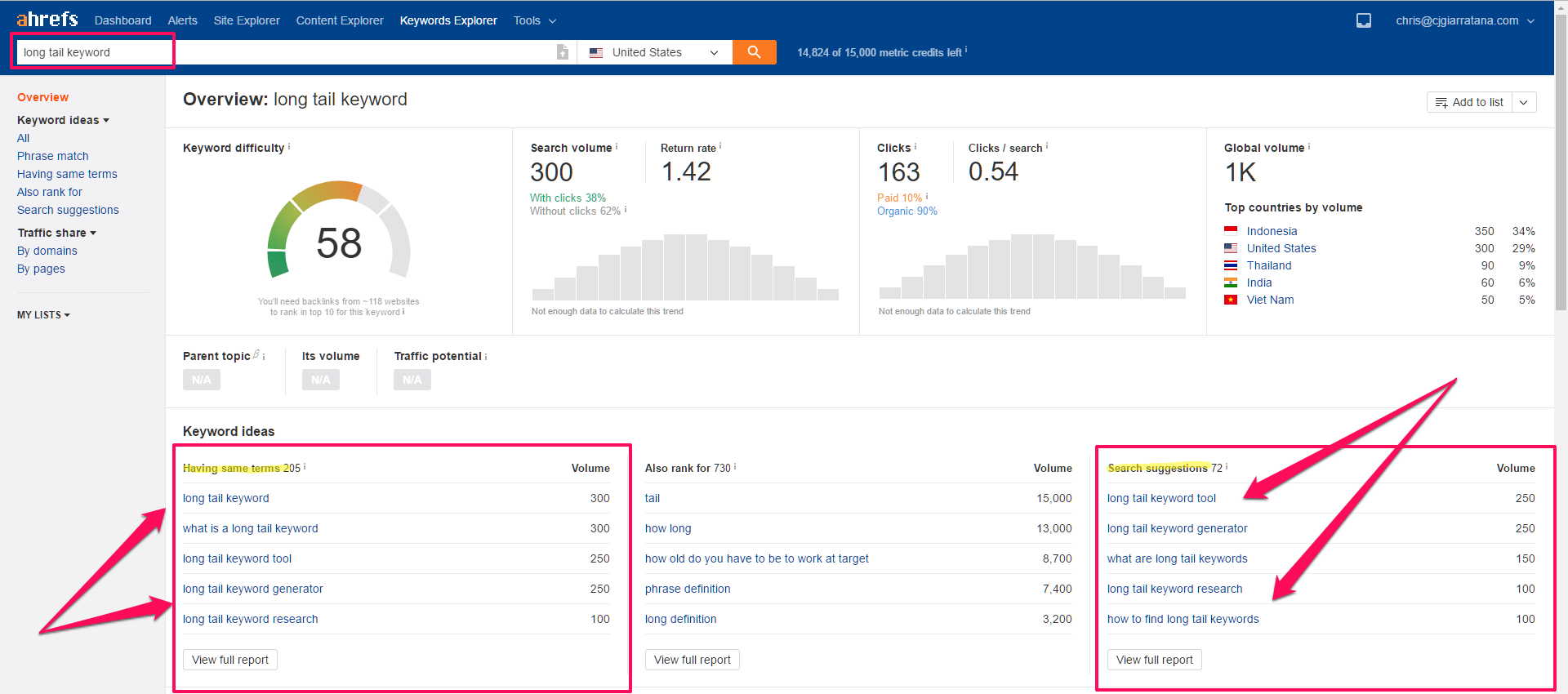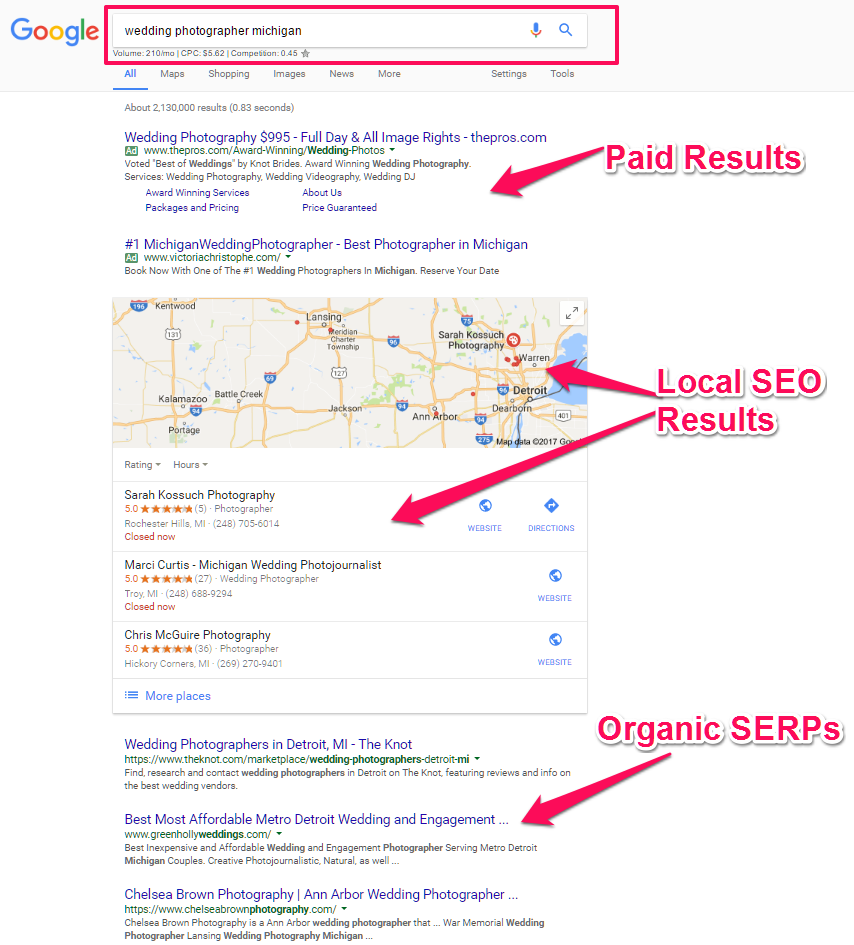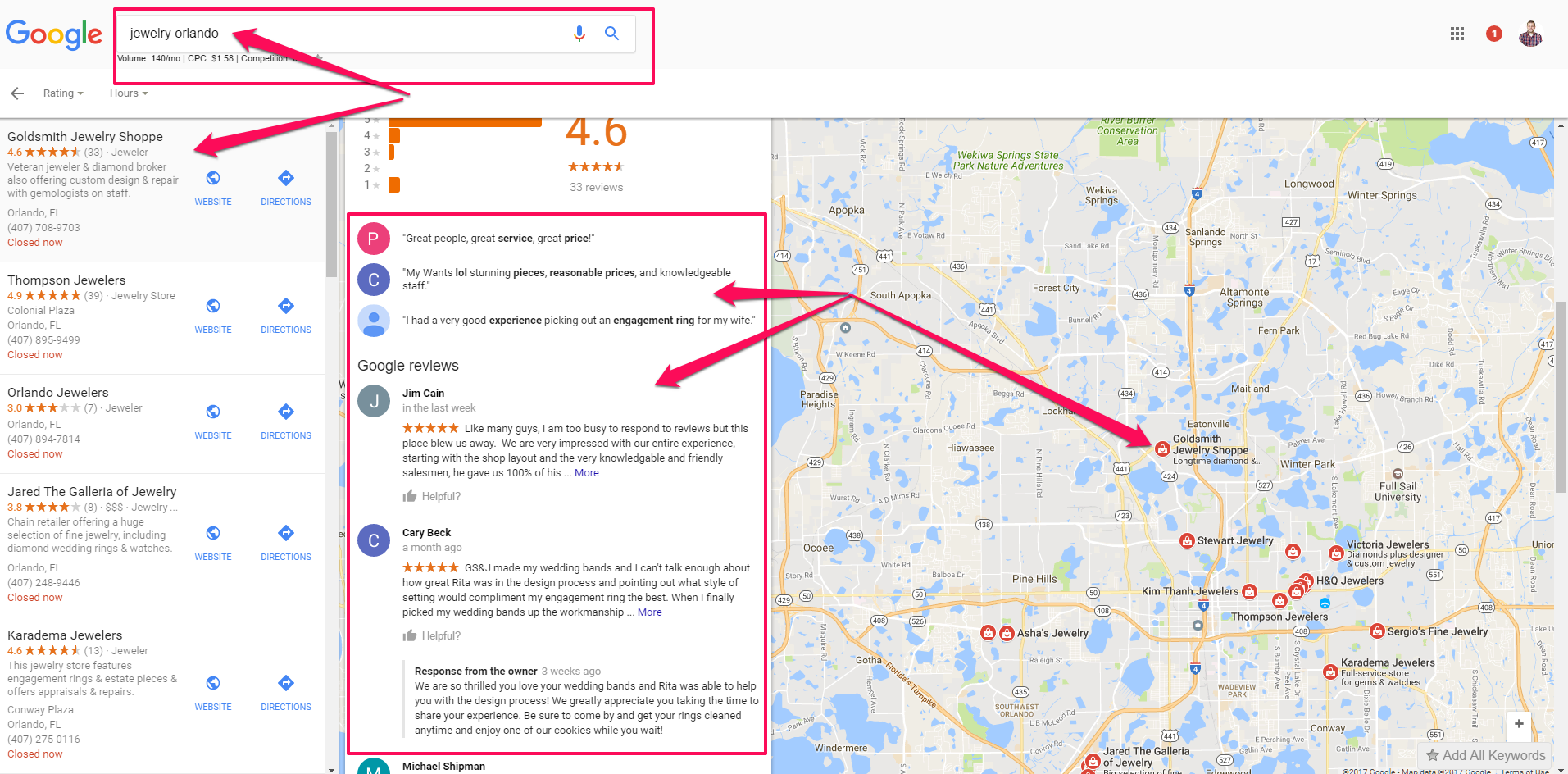Search engine optimization can be overwhelming to many small businesses and startups. This aspect of online marketing can be even more intimidating if you have a small marketing budget and can’t throw money at your marketing strategy like your largest competitors can.
Fear not! I am here today to let you know that you can build a robust SEO strategy even if you work on a shoestring budget.
However, while you can grow your business on a budget SEO plan, I don’t want to give you the illusion that you can compete with the mega-corporations in your market right away. This is because many corporate competitors have spent millions of dollars and have decades of content on their side.
Those companies have a substantial head start that will dilute your SEO strategy if not done the right way. However, there are proven methods that your business can use to build a powerful online presence without needing to break the bank!
Small Budget SEO for Big ROI
Since you want to create an SEO strategy on a shoestring budget, you will need to use your time and resources efficiently. Instead of relying on a monthly budget of thousands of dollars, you will need to use your creativity and hyper-focus your efforts on an SEO strategy that will yield the greatest results.
It’s easy to get overwhelmed with the details and complexities of a large SEO strategy. Blogging, branding, backlinking, local SEO, etc. are all important aspects of a business plan, but they also take a lot of knowledge and experience to run efficiently.
Instead of getting lost in the forest of information, let’s focus on specific actions you can take to grow your online presence with a small SEO budget.
These tips will work for any business in any industry.
However, they will look different depending on your audience, goals, and the resources at your disposal. With that said, let’s take a look at how you can build a robust SEO strategy without investing a lot of money!
1. Focus on Long-tail Keywords
Your customers want answers to their questions, and they want to find the best deal without wasting time. This is why your business needs to focus on user intent when building your SEO strategy.
One aspect of this type of strategy for a business with a limited SEO budget is to use long-tail keywords instead of general keywords.
Long-tail keywords are key phrases that are very specific to the needs of your customers. These types of phrases are longer and more accurate than their more commonly searched variations.
Unlike standard keywords, long-tail keywords offer your SEO strategy several benefits, including:
- Particular user-intent focus, content production, and publication.
- Lower competition compared to general keyword variations.
- Due to their specificity, long-tail keywords are highly focused and relevant to online searches.
- Long-tail keywords drive higher conversions because they deliver highly qualified traffic and leads through online searches.
Even though long-tail keywords will have much lower traffic compared to generic keyword terms, if you are working on a small SEO budget then you need to focus on user intent and conversions.
It is far easier (and cheaper) to rank for specific keywords that are highly relevant to your audience than to rank for general terms that your large corporate competition is bidding on.
The reason that long-tail keywords work so well for budget-conscious businesses is that Google continues to advance their algorithm to favor content that is relevant to specific search queries.
Gone are the days of sprinkling generic keywords in your content and achieving great online rankings. Google’s business model depends on high-quality third-party data and relevant information for their users.
The first step of a great budget-conscious SEO strategy is to focus on the needs of your customers and produce content with long-tail keywords.
2. Publish Quality Guest Blog Posts
Guest blogging is a powerful way to strengthen your SEO strategy because it allows you to share your knowledge with a new audience and helps you generate backlinks.
There has been a lot of debate on whether guest blogging is still valuable. As long as you don’t spam garbage content on sites with low authority, then there is no reason to think that guest blogging is not a valuable SEO strategy for a business with a limited budget.
Guest blogging is an inexpensive method to build backlinks, establish great relationships, and share your knowledge with a new audience. While guest blogging is a proven strategy to build your online ranking on a budget, it will require a significant amount of time to perform necessary tasks, including:
- Research your industry to find relevant sites that accept guest blog posts.
- Produce amazing content tailored to the readers of that website.
- Reach out to blog editors to build rapport and publish your excellent content.
- Follow up and continue your relationship — most websites don’t let you do one-off blog posts.
You should approach guest blogging with the objective to provide value to your readers. When done correctly, your online ranking will increase because search engines will show that your business is an authority in your industry.
3. Local Optimization
So you want to rank nationally on the cheap, huh? Well, let me be the first to tell you that it takes a lot of time, money, and energy to rank nationally for competitive keywords.
Companies have been working for years and spent millions of dollars to achieve a high ranking for keywords. You won’t be able to reach high rankings for general, highly competitive keywords if you don’t have a lot of money to invest.
Instead of looking for widespread attention, you would be better off to focus your limited budget in your local or regional market. Dominating your domestic market will provide the highest ROI and quickest growth opportunity compared to spreading your attention across a larger geographic area.
Local SEO is the answer for your business if you are trying to build a strong online presence on a relatively small SEO budget. Here are three local SEO strategies you can use to dominate your local market and skyrocket your online rankings.
Set up Google My Business and Local SEO Accounts
If you don’t have a Google My Business account yet, stop what you are doing (after you read this article) and go set one up. Google My Business is the directory that Google uses to show local businesses based on the search done by an online user. Along with getting in front of your audience, Google My Business will also boost your local SEO efforts by:
- Displaying your business on Google search results, Google Maps, and Google Plus.
- Setting up multiple locations. If your business has different locations in a region then you can differentiate between the locations.
- Upload videos and pictures. These are crucial if you want to overcome early objections and have a high-quality first impression.
- Highlight reviews from past customers. This is a great way to drive sales with social proof.
- Google My Business can help you build a loyal fan base and provides quick info about your business like directions, phone number, and hours of operation.
Those are just a few of the benefits your business will see with Google My Business. If nothing else, your business will drive conversions with a local SEO strategy with this great (and free) optimization tool.
Once you set up and optimize your Google My Business account, you will have premium exposure in Google search results, and this exposure provides your audience direct access to your business.
Even if your business does not have a brick-and-mortar store, you should still set up this service to gain all the benefits and qualified traffic.
To take your local SEO strategy one step further, you should also consider creating a business account with various local business directories. Some of the local directories I have seen great results from include:
Google My Business will position your company high in search results and local directories usually provide a no-follow backlink that can help your online ranking.
Generate Local Reviews
Customer reviews are the backbone of your local SEO strategy. Not only are these reviews essential for a low-budget SEO strategy, but they are also an easy way to improve your online presence.
Local reviews serve as a form of social proof, and they are quickly becoming the digital version of word-of-mouth marketing. Testimonials also help remove the nervousness of your potential customers from purchasing from you, especially if you offer a relatively unknown product or service because they:
- Show that your business is trustworthy and community members use and love your services.
- Help you build a positive reputation. This will help you build authority, especially if you are new to the market.
- Increase exposure in online searches. Google Local uses reviews to understand your business and displays the reviews in local search results.
If you are operating on a limited SEO budget, then you should focus your marketing efforts and resources on your local community. You can run a simple campaign by asking your customers to provide a review on the spot, include an invitation on your receipts, and run marketing campaigns to get people to give testimonials on your website or online listings.
Get Involved With Local Networking & Meetups
Since a local SEO strategy is the best use of funds for a budget-conscious business (see above points), you should continue to build your authority in your local market by networking. If you are a new business, then you need to increase brand awareness, and you can accomplish this with local networking and building connections.
While this strategy takes a significant amount of time, you can also host a meetup or present at local events to reach new customers or build new partnerships in the community. Forming partnerships with other local businesses can help you generate great content and build a great backlink profile.
These elements will help your SEO strategy for almost no monetary investment. For example, if you are a wedding photographer, you can partner with a local wedding decor store to create a content series to talk about wedding-related issues.
This partnership means that your business gains access to the audience of other companies and this helps generate valuable content for your audience. You can also use these connections to form partnerships to improve your content marketing strategy, and help you build online connections to improve your backlink profile (see previous points).
Ballin’ on a Budget-friendly SEO Strategy
The great thing about SEO is that the best practices are constantly changing. This means you can build a robust SEO strategy even if you lack the big marketing budget of your competition. The only caveat is that you will need to invest time and creativity to improve how you rank online.
Just remember to focus your limited time, money, and resources on highly-focused content through long-tail keywords, optimize your business for local SEO, and publish excellent content through guest blogging to hit your business!
Use these tips to reach your audience and drive online sales without a deep marketing budget!
Source: 3 Simple Ways to Build a Winning SEO Strategy on a Shoestring Budget
502.822.6695
team@guardianowldigital.com





Recent Comments